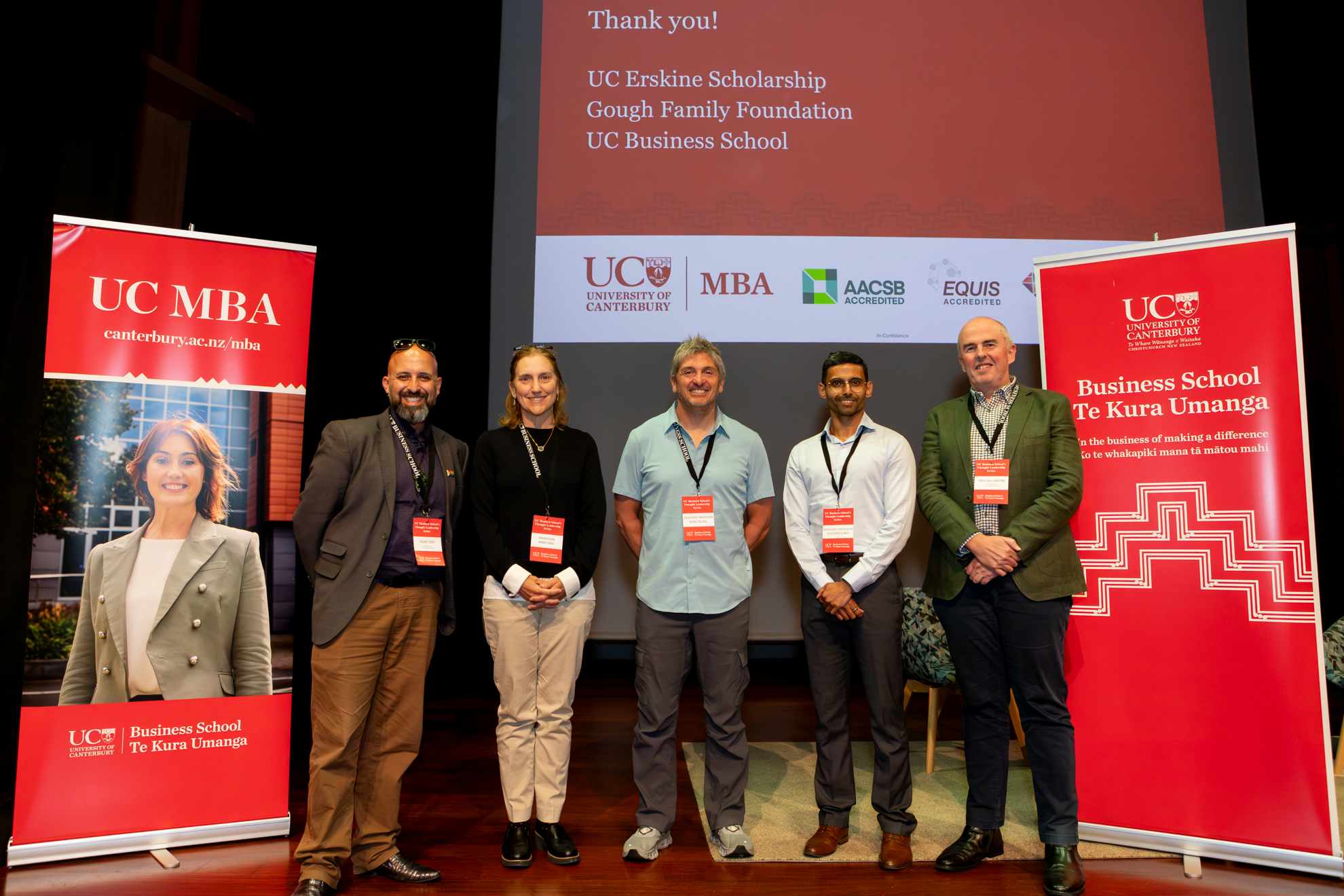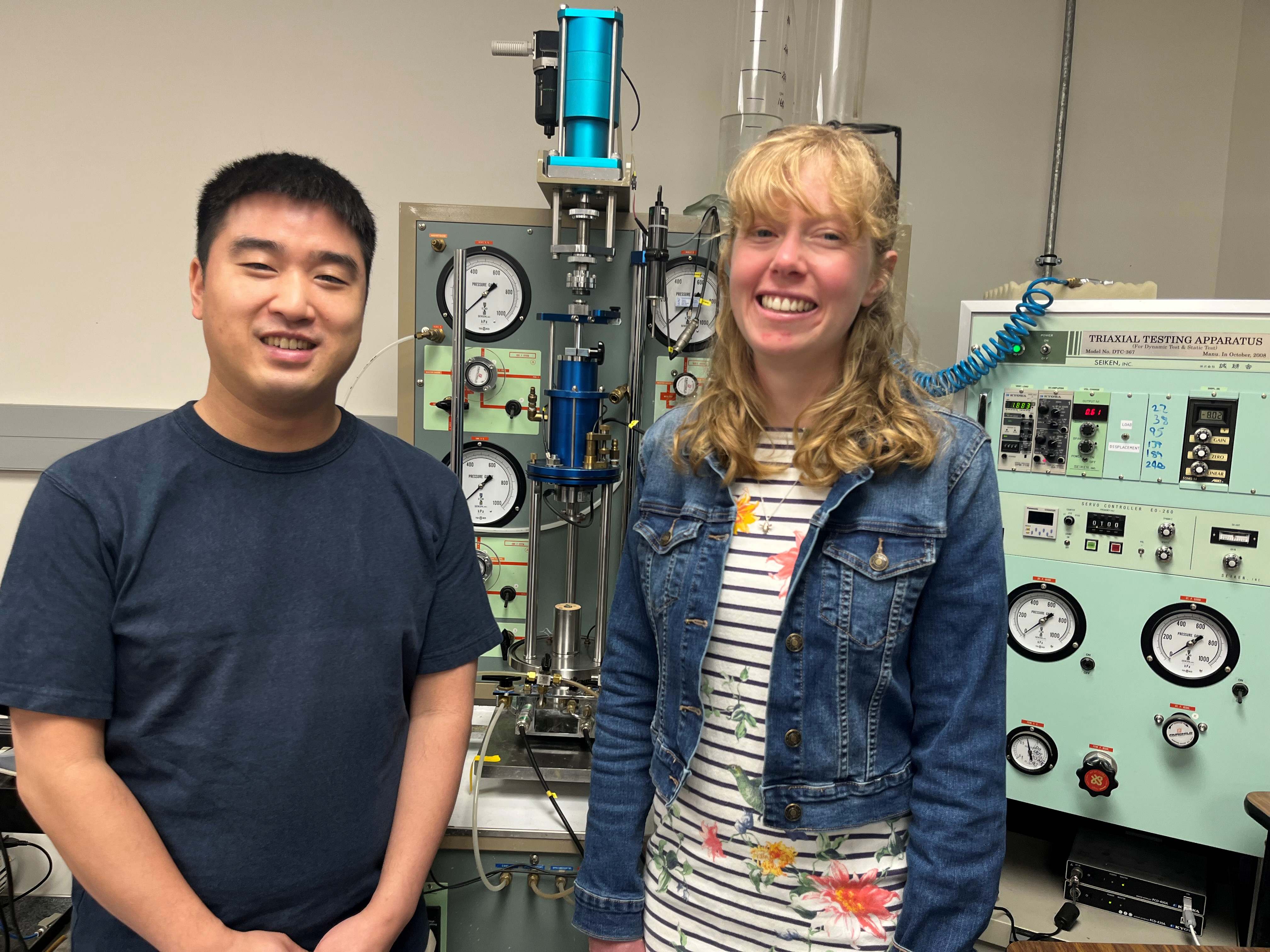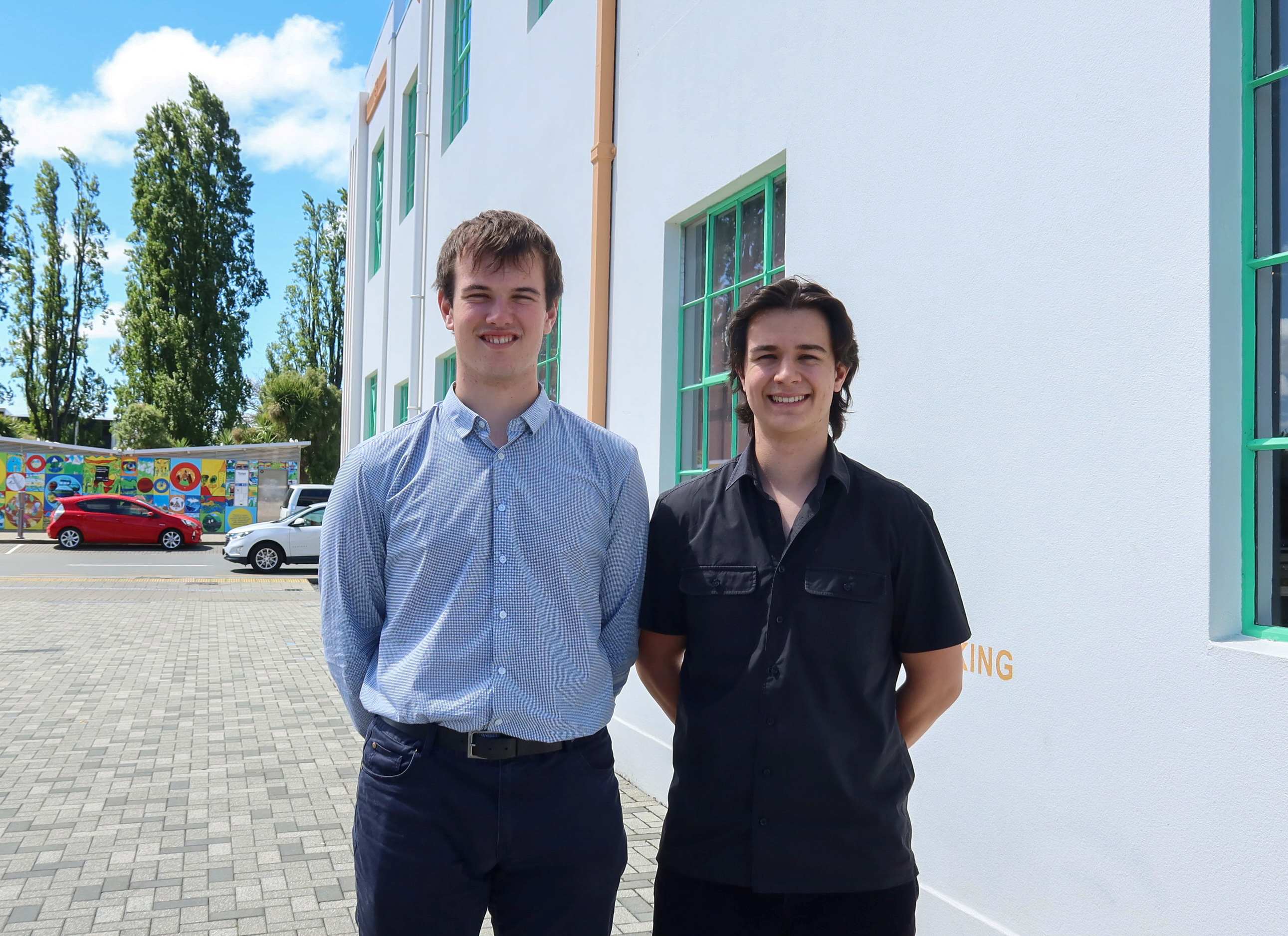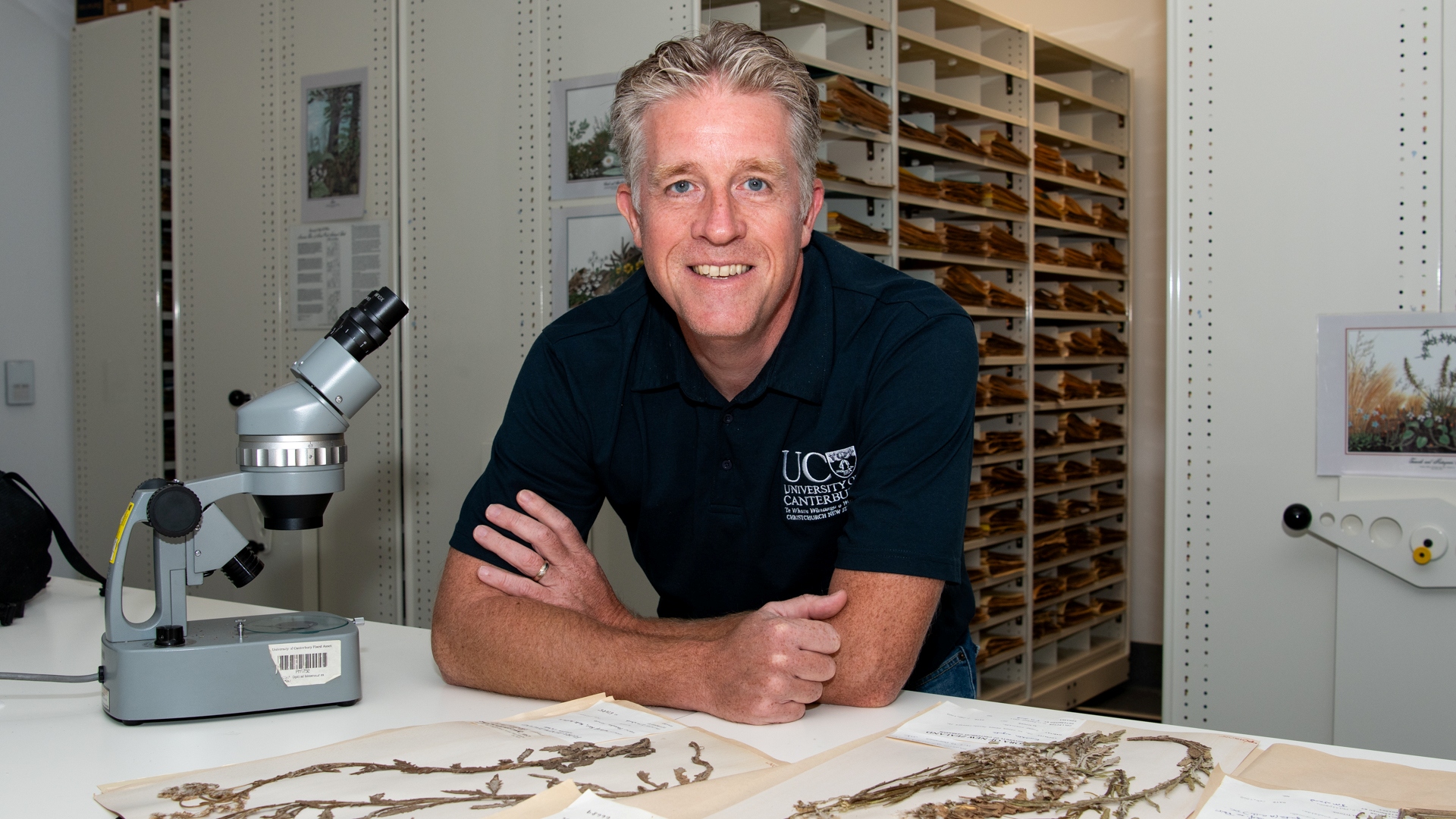Photo caption: UC postdoctoral student Dr Rachel Bennie and PhD student Jin Ang have been working alongside UC and international researchers to make affordable hybrid meat - a product that blends plant-based ingredients with cultured animal cells.
Hybrid meat blends plant-based ingredients with cultured animal cells, offering a promising protein source with lower environmental impact. However, challenges around flavour, cost, and allergen safety have stalled widespread consumer acceptance but new research is set to change this.
The research has been awarded $3million from the Ministry of Business, Innovation and Employment (MBIE) for the three-year project which is co-led by Te Whare Wānanga o Waitaha | University of Canterbury (UC) Faculty of Science Professor Renwick Dobson and Hanry Yu of the National University of Singapore and includes researchers from the University of Auckland, Massey University, and Plant and Food Research. The project will develop an all-in-one culture system that enhances the taste and nutritional value of hybrid meats while remaining cost-effective.
“We will grow real animal cells like beef, pork, or fish on special edible structures made from plant industry side-streams. These plant-based structures not only give the cells something to grow on, but they’re also designed to help the cells develop more of the natural chemicals that give meat its rich flavour when cooked,” says Professor Dobson.
The global cultivated meat market is projected to grow from US$0.2B in 2024 to US$229B by 2050. With support from MBIE and Singapore’s A*STAR, this initiative promises significant commercial returns, job creation, and advancement toward resilient and sustainable food systems in both countries. “We see this technology as being an important addition to NZ’s already internationally recognised primary meat sector and will add significant additional value to the industry.”
“We are also aiming to open new markets for hypoallergenic hybrid meat products which will be critical for food-insecure regions and for consumers with dietary restrictions.”
“This is not just about food innovation, it’s about redefining the future of protein. Our goal is to produce safe, delicious hybrid meat that meets consumer expectations while addressing the pressing issues of sustainability and global food security.”
The project is designed to support New Zealand’s goal to double food exports by 2035 and Singapore’s "30 by 30" strategy for food self-sufficiency. By leveraging each country’s strengths, from Singapore’s biotech innovation to New Zealand’s agricultural expertise, the collaboration seeks to lead the world in sustainable, science-based food production.










